What is the goal of PODS?
Our goal is to use human-centered design to help teams make progress toward their own project goals. It’s not about us; it’s about you and what you want to achieve. We provide exercises and ideas, the time and space for brainstorming and idea-generation, and a team coach who will offer the mindset of design thinking, ask questions, and help connect you to additional resources around campus. The goal of PODS is not to “finish” your project or to arrive at a particular solution by the end of the week; rather we hope you leave with energy, inspiration, new skills in design-thinking, and momentum to bring your project forward successfully.
PODS at TLISI
Since its inception, TLISI has been a gathering place for Georgetown’s community of educators to come together to learn, share best practices and research, and ask questions about teaching and learning at Georgetown and beyond. But at its core, TLISI exists to support innovation in teaching and learning in an effort to continually drive the University forward in its mission to promote academic excellence. Over the years, we felt the need to create a dedicated space for innovation-in-practice, where faculty, staff, and students could truly ideate, iterate, and create during the week of TLISI. We imagined a space where groups from across campus could bring together big ideas and challenges in their work and make progress toward solutions. Thus, in 2015, PODS—or Productive Open Design Spaces—became a part of TLISI to fulfill that need.
What can I expect from PODS?
PODS participants can expect to attend a kick-off event on the first day, where teams will introduce themselves and their projects, and also participate in a short design sprint using several elements of design thinking. All teams will receive a PODS workbook and will be assigned a team coach from CNDLS. Over the course of the week, your team should plan several blocks of time to meet with your team and coach to work through design exercises, generate ideas, and possibly even develop prototypes for feedback.
Expect that this process will consist of twists and turns; expect to engage in thinking creatively with others. Don’t expect to solve all your project’s challenges and leave with a clear plan forward. Rather, expect to leave with a new perspective on your challenge, and some new skills for how to move it forward. If desired by enough teams, the PODS week may conclude with brief team presentations where they can receive feedback or additional resources from members of other teams.
What is design thinking?
Design thinking is a fundamentally human-centered approach to problem-solving. Originating with architects’ and designers’ creative processes, it has become increasingly popular not only in business but also in higher education. Stanford University’s Hasso Plattner Institute of Design (known as the d. school) has popularized a five step design thinking process for jumpstarting innovation that requires designers to empathize, define, ideate, prototype and test. At its core, design thinking has the value of empathy, or the quest to understand another. In our work in higher education, this places the student in the center of the process. For connections between design thinking and Ignatian pedagogy, see the CNDLS page on Ignatian pedagogy. Additional resources on design thinking include:
Ready to Apply?
Applications for PODS 2025 closed on April 25, 2025.
Have additional questions, or are interested in getting in touch for a future date? Email us at tlisi@georgetown.edu.
Past projects

Science For All
The “Science For All” PODS team brought together faculty teaching Science for All (SFA) courses to explore how to create a more consistent and effective student experience across diverse classes. Through discussions on defining success, emphasizing key learning goals, and assessing both faculty and student outcomes, the team worked toward developing a faculty guide to support the creation and refinement of SFA courses. Additionally, the group aimed to produce a summary report for the Core Science Committee to inform broader discussions on SFA teaching practices. With facilitation from CNDLS coaches and collaborative input, the workshop laid the groundwork for strengthening SFA core courses at Georgetown.
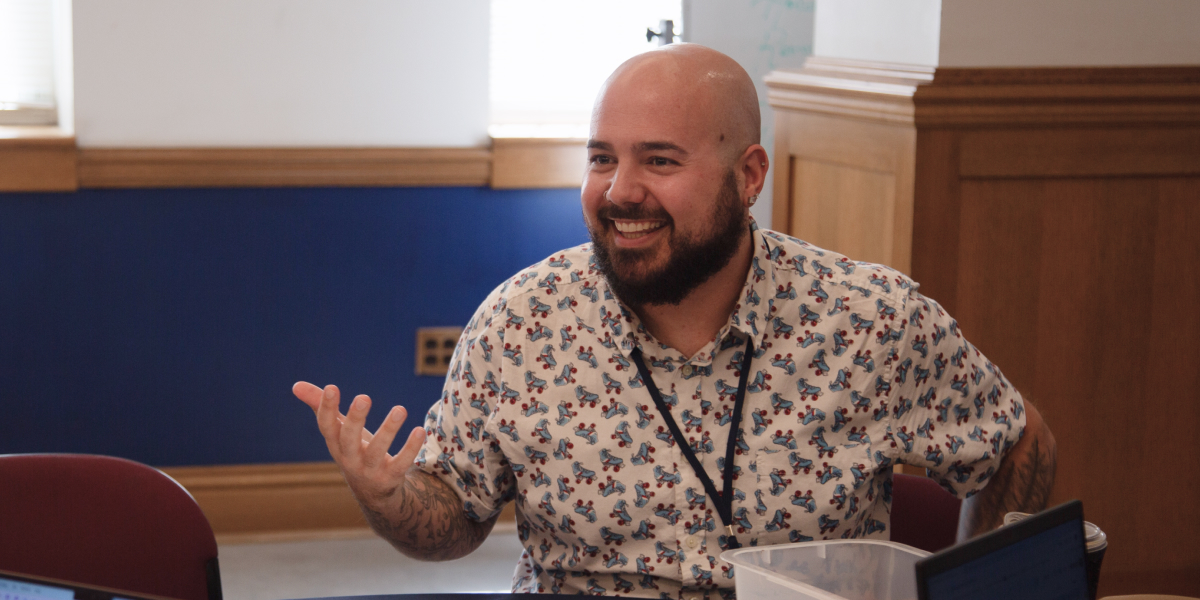
What are we doing here?
The MSB Undergraduate Team joined PODS for the second year in a row, looking to reflect on their roles, contributions, and overarching purpose. Their self-titled team, “What Are We Doing Here?”, built on the previous year’s work developing mission, vision, and learning pillars. This year the team concentrated on the “How might we…” design thinking exercise, generating more than 20 questions focused on maximizing student success and engagement, while also improving collaboration and tending to staff workloads and well-being. The team, guided by CNDLS coaches and collaborative feedback sessions, aimed to establish a foundation for a strategic plan to guide their work moving forward.
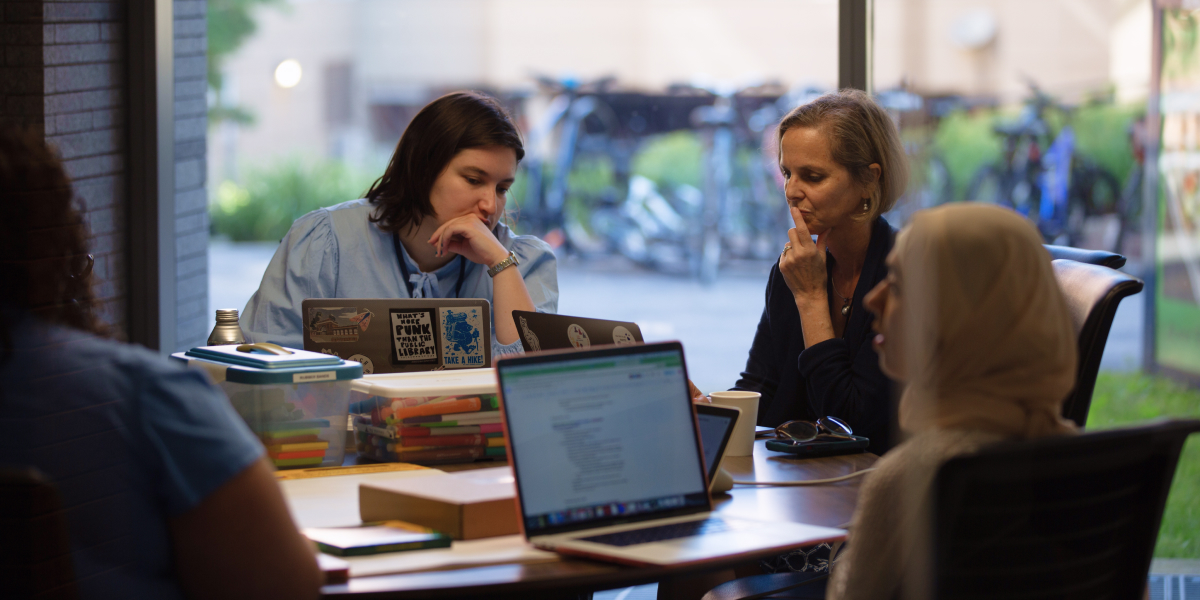
Restorative Georgetown
The “Restorative Georgetown: Rapid Response Plan for Times of Crisis” PODS team focused on developing a trauma-informed, restorative framework for responding to campus crises. Addressing the challenges of global, national, and local incidents, the team sought to create a response plan to support the community in times of division or distress. Through collaborative discussions and design thinking, participants worked to coordinate resources and responsibilities across departments, exploring strategies for communication, harm reduction, and community care. The workshop laid the foundation for a comprehensive Rapid Response Plan to guide Georgetown’s efforts during future crises, including the 2024 election.
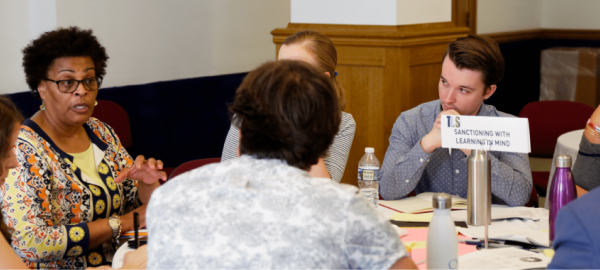
Sanctioning with learning in mind
The Sanctioning with Learning in Mind team took a deep dive into the goals and process associated with the “educational sanctions” portion of student conduct sanctioning. The group conducted multiple iterations of empathy mapping and elicited diverse perspectives from hearing officers, emerging with a more Ignatian-informed and student-centered plan. Their next step is to create learning goals to both help shape sanctioning projects and also enable assessment of student learning.

Public writing at Georgetown
Taking advantage of the design thinking strategy of engaging stakeholders, the Public Writing at Georgetown team met with faculty in different departments to find out what their needs were in terms of helping their students learn to write, and also met with potential real-world clients (e.g. the career center and fellowships office) to explore how students could write for authentic audiences on behalf of those offices, such as telling stories to alumni and to potential fellowship applicants.
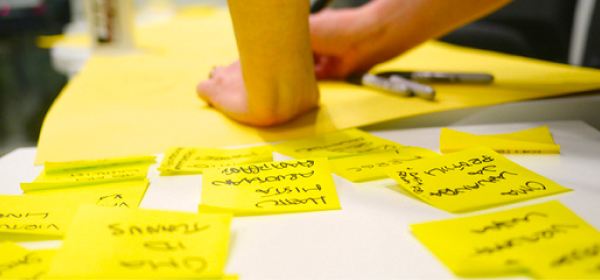
Quantitative reasoning in the discipline
Quantitative Reasoning in the Discipline (QuID) focused on designing a framework for fostering quantitative literacy in biology majors. The group outlined four competencies they want to foster in their students: Basic Skills of Numeracy, Calculation, and Visualization; Computation; Statistics and Data Analysis; and Modeling and Abstraction.
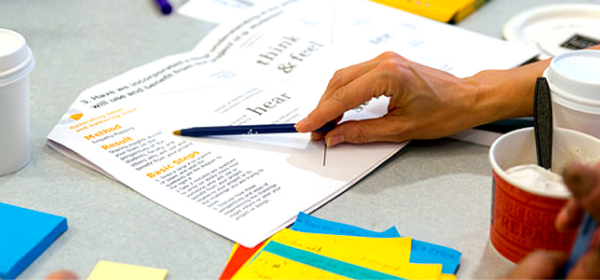
Disability studies studio
The Disability Studies Studio Collaborative used PODS to engage in curriculum mapping and other design practices in order to push the development of a micro-credential or matrix requirement to the next stage through planning for three inter-connecting courses. They conducted a student survey, working toward the successful approval of a Disabilities Studies minor.
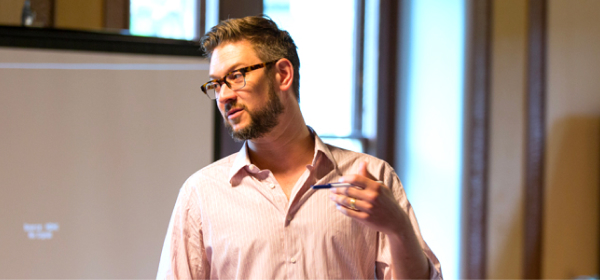
SFS proseminar
The SFS Proseminar group worked to create/re-create the curriculum and pedagogical approach for attaching 1-credit writing studios to SFS Proseminar sections. In addition to aiding the students in their work in these courses, these writing studios will also fulfill the general requirements for the University first-year writing requirement.


